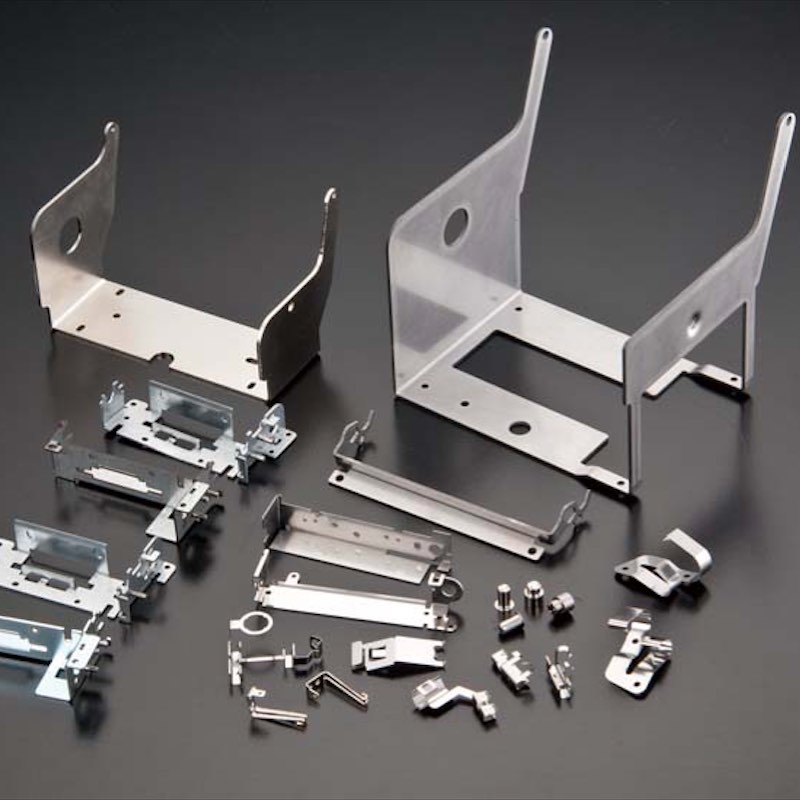
In today’s manufacturing world, businesses are constantly under pressure to deliver faster, more innovative products with greater precision and accuracy. Custom metal stamping is a crucial process in meeting these demands. Whether it’s a bracket in a car or a connector in a piece of medical equipment, chances are a stamped metal part is behind it. But what exactly is custom metal stamping, and why does it matter?
Let’s break it down in simple terms.
Understanding Custom Metal Stamping
Custom metal stamping is the process of turning flat metal sheets into parts shaped exactly how you need them. These parts can be incredibly simple or highly intricate; it all depends on what they’re meant to do. Unlike ready-made solutions, custom stamping focuses on building components that match precise measurements, shapes, and performance goals.
It’s a go-to technique for industries like automotive, aerospace, medical, electronics, and industrial equipment—places where custom metal stampings and non-cookie-cutter parts are essential.
How the Process Works
Everything starts with a design. The client shares their specifications, and a team of engineers turns that idea into a blueprint. Using advanced software, the team creates tools or dies that can stamp the required shapes from metal sheets.
Once the dies are ready, machines press the metal sheets through them. Depending on the complexity, a part may go through multiple stamping steps, cutting, bending, punching, and forming until the final shape is achieved.
This process allows for tight tolerances, high repeatability, and fast production, making it ideal for both small-batch prototypes and high-volume orders.
Why Choose Custom Metal Stamping?
Here are a few reasons why manufacturers turn to this method:
- High Precision: If the part must meet strict specifications, high precision stamping in custom processes ensures accuracy down to the smallest detail.
- Speed and Efficiency: Once tooling is in place, the actual stamping is incredibly fast, helping manufacturers keep up with tight deadlines.
- Cost-Effective at Scale: Although the initial setup requires an investment in custom dies, the per-part cost decreases significantly for large orders.
- Material Flexibility: Steel, aluminium, copper, brass, you name it. The process accommodates a diverse range of metals.
- Versatility in Design: From simple washers to intricate medical parts, custom stamping offers design freedom that off-the-shelf parts can’t match.
Real-World Applications
Custom metal stamping touches almost every industry:
In the automotive world: custom stamping is behind parts like engine clips, seatbelt brackets, and other components that need to fit and function perfectly.
In aerospace: it plays a key role in producing parts that are both lightweight and incredibly strong, crucial for flight and safety.
For electronics: it’s used to create detailed pieces like contacts, housings, and frames that require tight precision.
When it comes to medical devices: this method allows manufacturers to produce small, high-accuracy parts that often serve life-saving functions.
Across all these industries, these components are expected to perform under pressure, where durability, strength, and exact fit aren’t optional but essential.
What to Consider When Choosing a Metal Stamping Partner
Not all stamping partners are the same. If you’re considering custom metal work, here’s what to look for:
- Experience and Engineering Expertise: You need a team that understands how to turn your idea into a reliable product.
- Modern Equipment: Outdated machines can lead to poor tolerances and delays. Seek a supplier that invests in the latest technology.
- Quality Assurance: Ask about inspection processes, testing, and certifications.
- Open Communication: A good partner keeps you informed, from prototyping to final production.
Final Thoughts
Custom metal stamping is more than just shaping metal; it’s about engineering solutions tailored to real-world needs. In a market where precision and speed are key, this process offers manufacturers the tools to stay competitive.
If your next project demands parts that are accurate, consistent, and built to last, custom stamping is the solution you need.





